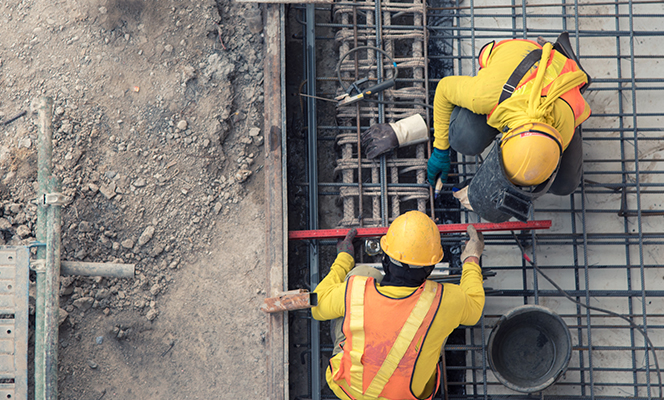Construction Accident Lawyers in Jacksonville, FL
Representing Construction Workers Injured on the Job
Construction workers who suffer on-the-job injuries need a lawyer who will have their interests at heart, not those of the insurance company or employer. At Coker Law, our attorneys represent workers and others injured in construction site accidents.
Construction workers face some of the most dangerous working conditions in the country on a daily basis. Although there are regulations, statutes, ordinances and industry standards that mandate employers must provide a reasonably safe working environment, construction workers still suffer serious injuries at an alarming rate.
The number of hazards on a construction site is enormous. These hazards include falls from scaffolds and other elevations, being struck by moving or falling machinery, electrocution, health hazards resulting from exposure to asbestos and chemicals, injuries caused by defective or unsafe equipment, and lifting and repetitive motion injuries.
Who May Be Responsible and Liable For A Construction Site Injury?
Numerous parties may be liable when a construction worker suffers a work-related injury:
- Property owners
- General, prime and subcontractors
- Architects, engineers or other designers
- Construction managers
- Suppliers and manufacturers of equipment and materials
- Insurers
The liability of these various parties depends on the type of management and oversight system of the construction project. The main legal question with regard to liability for construction workers' injuries concerns who maintains control and authority over the property where the work is being done and the type of work that is being done.
For example, in larger projects, much of the work is delegated out, whether by general contractors or a construction management organization. It is important to name all potential liable parties at the outset of any litigation to preserve your claim against them. An experienced construction litigation attorney can help you determine who the responsible parties may be according to the specific circumstances of your case.
OSHA & Safety Regulations
Safety regulations under the Occupational Safety and Health Act of 1970 (OSHA) have been adopted by most states in some form, and these regulations apply to work done at construction sites. The issue of who is responsible for ensuring compliance with OSHA regulations (i.e. general contractor or sub-contractor) often turns on who was in control of the job site or job activity when the injured employee was hurt.
The legal effect of a violation of OSHA regulations will vary depending on the state in which the injury took place. In certain jurisdictions, if it can be shown that an OSHA regulation was violated and an injury resulted, no additional evidence is needed to establish that the employer was negligent.
OSHA regulations are not the only legal standards to which a property owner, general contractor or sub-contractor may be held in determining liability for a construction accident. Often the property owner or general contractor will have his or her own set of safety rules, either generally applicable or specific to the construction project at hand, designed to protect those performing work on the project. Violations of these regulations may serve to support a claim for a construction accident.
Pursuing a Construction Accident Injury Claim
If you have been injured by a construction site accident, there are several things you can do to protect yourself and your legal rights:
- Report the injury to your employer and/or construction site manager as soon as possible, and note the name and position of the person you notified.
- Get the names and contact information of anyone who may have witnessed the accident.
- If possible, try to preserve any evidence related to your injury by taking photographs of the area where you were injured (and the injuries themselves), or keeping the equipment or tool that was involved in your injury.
- Get medical attention for your injuries as soon as possible.
- Consult an experienced attorney as soon as possible to help you evaluate any potential claims and discuss your state's workers' compensation laws. Click here to learn more about our firm's workers' compensation practice and cases.







